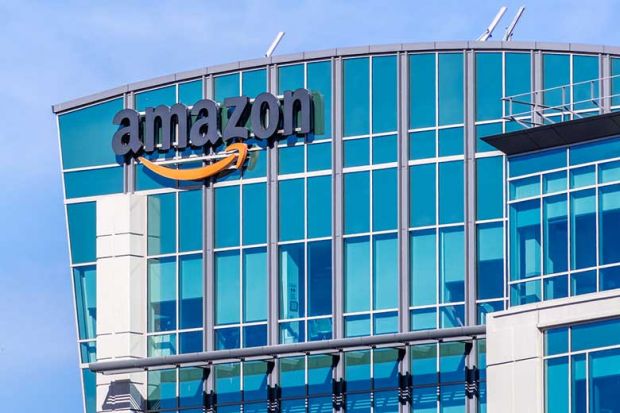When the Amazon corporation requested proposals for the location of a second North American headquarters, known as HQ2, cities across the continent hustled to make their case.
With a total of 238 making bids, some went to great lengths to distinguish themselves from the competition. Tucson, Arizona, sent a 21-foot cactus to the online retailer’s Seattle headquarters (delivery was politely declined). The small city of Stonecrest in Georgia offered to rename itself “Amazon”. Even New York City felt the need to launch its bid by illuminating the Empire State Building in Amazon orange.
While that was probably not the reason why Long Island City, in New York’s Queens district, was one of the two joint winners announced in November, it is possible that the whole bidding process was designed to get more from the sites that Amazon had its eye on all along. After all, the other winner – a section of Arlington County in northern Virginia rebranded “National Landing” – was even more of a front runner given its proximity to Washington DC. Yet many say that its focus on higher education is what ultimately helped Virginia seal the deal.
The state has committed to investing up to $375 million (£294 million) in its public higher education system. George Mason University is to almost double the size of its second campus in Arlington. Together with the state, it will invest some $250 million in computing degrees, hiring new staff and expanding its campus over the next five years, with a new School of Computing also set to open.
The plans of Virginia Polytechnic Institute and State University (Virginia Tech) are arguably more ambitious still. Its new $1 billion graduate campus in Alexandria, two miles from the Amazon site, will welcome hundreds of master’s and PhD students. It will also include academic offices, research and development facilities, student and faculty housing, and space for start-up incubators and established corporate partners.
The conception of Virginia Tech’s “innovation campus” predates the bidding war by several years, but the pace of development was clearly ramped up in response to the prospect of Amazon’s 50,000 highly paid tech jobs.
Partnerships between higher education institutions and businesses are, of course, common. Stanford University had a decisive role in creating the economic powerhouse that is Silicon Valley, while Harvard University, the Massachusetts Institute of Technology and other Boston universities are now playing a major part in the success of nearby science parks. But the proposals from universities and states to win HQ2 veered beyond the contours of normal practice.
It is tempting to marvel at Amazon’s power to captivate the public imagination and drive cross-sector decision-making. Yet there are also reasons to be wary of the influence that the corporation was able to exert over higher education.
While Amazon is a powerful partner, it also comes with ethical concerns. The $1 trillion company has faced criticism over its use of customer data and potential violations of antitrust (competition) law, and reports have detailed alarming working conditions in its warehouses and fulfilment (distribution) centres. Will scholars be reluctant to examine critically the retailer’s growing impact on American life if their institutions are so heavily entwined with its fortunes?
Furthermore, will Virginia universities be able to resist corporate pressures on the direction of their academic programmes? Leaders at Virginia Tech might do well to look to the circumstances of a southern peer, the Georgia Institute of Technology. Georgia Tech has several strong, long-standing corporate partnerships. A senior associate dean in its College of Computing has previously noted that “there’s a tension between the short-term needs of companies and the mission of the university to provide something more robust for the long term. Every year some company comes to us with a whole new idea about our curriculum that would force us to change everything we do…Then in three years they come back with a completely different idea…Universities have the responsibility to push back.”
In Virginia Tech’s case, reputational risks may only be heightened by the inescapable fact that its new campus will owe its sheer existence to Amazon. As ground is broken, higher education more generally may have to examine some cracks in its foundations.
Michelle Dimino is a student in the University of Pennsylvania Graduate School of Education.
POSTSCRIPT:
Print headline: Amazon is jungle for universities
Register to continue
Why register?
- Registration is free and only takes a moment
- Once registered, you can read 3 articles a month
- Sign up for our newsletter
Subscribe
Or subscribe for unlimited access to:
- Unlimited access to news, views, insights & reviews
- Digital editions
- Digital access to THE’s university and college rankings analysis
Already registered or a current subscriber? Login










